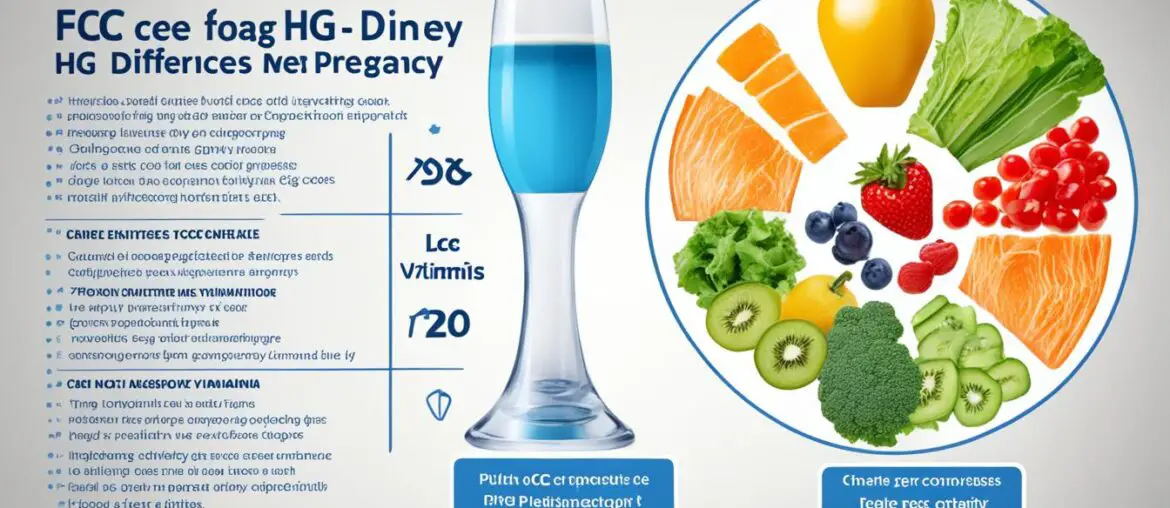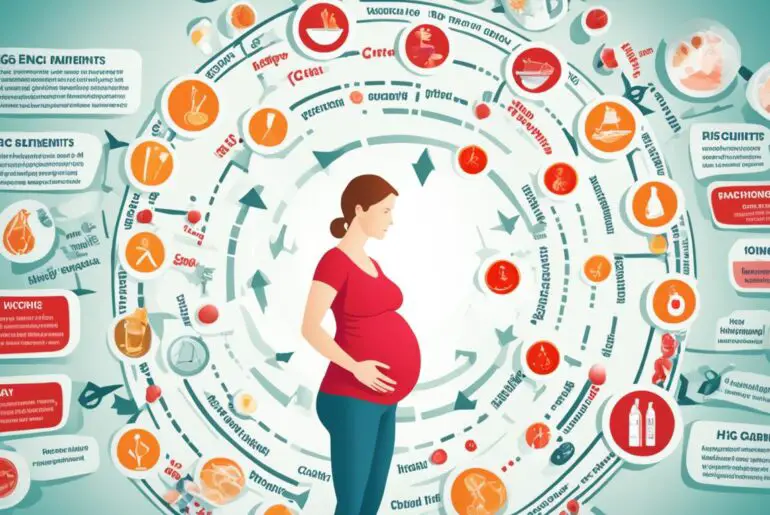Did you know that the HCG diet is not actually related to pregnancy, despite its name? This controversial weight loss plan combines HCG supplements or hormone injections with an extremely low-calorie diet. With its three phases – Gorging/Loading, Fat Burn, and Maintenance – the HCG diet promises rapid weight loss. However, if you’re considering pregnancy preparation, there are important factors to consider before embarking on this diet.
Key Takeaways:
- The HCG diet is not recommended for pregnant women or those planning for pregnancy.
- Extreme calorie restriction and hormonal effects may not be suitable for women trying to conceive.
- Prioritize overall health and consult with a healthcare provider for personalized advice on pregnancy preparation.
- There are safer and more suitable approaches to weight loss and pregnancy preparation.
- It is important to consider the potential risks and consult with a physician before starting any weight loss plan.
Understanding the HCG Diet
The HCG diet is a controversial weight loss plan that combines HCG supplements or hormone injections with a very low-calorie diet. It is divided into three phases: Phase 1 – Gorging/Loading, Phase 2 – Fat Burn, and Phase 3 – Maintenance.
The HCG hormone is believed to reset the hypothalamus and improve metabolism, leading to weight loss. However, the safety and effectiveness of the HCG diet are highly debated among health experts.
It is important to consult with a healthcare provider before starting this diet, especially if you are planning for pregnancy.
HCG Diet Phases Explained

The HCG diet follows a structured approach divided into three distinct phases – Phase 1, Phase 2, and Phase 3. Each phase serves a specific purpose in achieving successful weight loss while being safe for individuals.
Phase 1: Gorging/Loading
The first phase of the HCG diet, called the Gorging/Loading phase, lasts for two days. During this phase, individuals are encouraged to consume high-fat, high-calorie foods to prepare their bodies for the upcoming calorie restriction. This phase also coincides with the initiation of HCG supplementation.
Phase 2: Fat Burn
The second phase, known as the Fat Burn phase, is the main weight loss phase of the HCG diet. Spanning 21 days, this phase requires individuals to limit their daily calorie intake to 500 calories while continuing HCG supplementation. The focus is on consuming lean proteins, specific vegetables, and a selection of fruits while avoiding starches. It is crucial to adhere strictly to the recommended food choices and portion sizes during this phase.
Phase 3: Maintenance
After completing HCG supplementation, individuals enter the Maintenance phase, which lasts for three weeks. In this phase, calorie intake can gradually increase while still avoiding sugar and starch. The goal is to stabilize weight loss and establish a healthy eating pattern. Female participants typically consume 800-1200 calories, while males consume 1200-1500 calories during this phase.
By progressing through the HCG diet phases, individuals can experience significant weight loss while resetting their metabolism and improving their overall well-being. It is important to follow the specific guidelines of each phase and consult with a healthcare provider before starting any weight loss plan.
HCG Diet and Pregnancy
The HCG diet is not recommended for women who are pregnant or planning for pregnancy. The extreme calorie restriction and potential hormonal effects of the diet may not provide sufficient nutrition for a healthy pregnancy. It is important to consult with a healthcare provider before starting any weight loss plan, especially if you are trying to conceive or are already pregnant. There are safer and more suitable approaches to weight loss and pregnancy preparation.
It is crucial for women to prioritize their overall health and well-being when considering pregnancy preparation. While weight loss may be a goal, extreme calorie restriction and potential hormonal effects of the HCG diet can have negative impacts on fertility and the development of a healthy pregnancy.
Consulting with a healthcare provider before embarking on any weight loss journey is essential, particularly during pregnancy or when actively trying to conceive. They can provide personalized guidance and recommend safer alternatives that meet the specific needs of the individual.
“The HCG diet is not recommended during pregnancy due to the potential risks it poses to both the mother and the developing fetus.” – Dr. Emily Roberts, OB-GYN
The Risks of HCG Diet during Pregnancy
- Insufficient nutrition: The HCG diet’s extreme calorie restriction may not provide the necessary nutrients for a healthy pregnancy.
- Hormonal effects: HCG supplementation may interfere with the body’s natural hormone balance, which is crucial for pregnancy.
- Developmental risks: Inadequate calorie intake and potential hormonal imbalances can adversely affect fetal development.
- Potential complications: The HCG diet’s associated risks may lead to complications during pregnancy, such as gestational diabetes or preterm labor.
Safer Approaches to Weight Loss during Pregnancy
- Healthy, balanced diet: Focus on consuming a variety of nutrient-dense foods, including fruits, vegetables, lean proteins, whole grains, and healthy fats.
- Regular physical activity: Engage in safe and appropriate exercise during pregnancy, such as prenatal yoga, swimming, or walking under the guidance of a healthcare provider.
- Supportive prenatal care: Seek regular prenatal check-ups and work closely with a healthcare provider to monitor weight gain, address concerns, and optimize overall health.
Ultimately, it is crucial to prioritize the well-being of both the mother and the baby during pregnancy. Safe and sensible approaches to weight management, under the guidance of healthcare professionals, can ensure a healthy pregnancy and set the foundation for a lifetime of well-being.
| HCG Diet | Pregnancy Preparation | |
|---|---|---|
| Calorie Restriction | Extreme calorie restriction, as low as 500 calories per day | Focuses on maintaining a balanced and nutritious diet |
| Nutrient Intake | May not provide sufficient nutrients for a healthy pregnancy | Emphasizes adequate nutrition for the mother and developing fetus |
| Hormonal Effects | Potential disruption of natural hormone balance | Promotes hormonal balance essential for fertility and pregnancy |
| Associated Risks | Potential complications and developmental risks | Minimizes potential risks to the mother and baby |
Phase 1 – Gorging/Loading
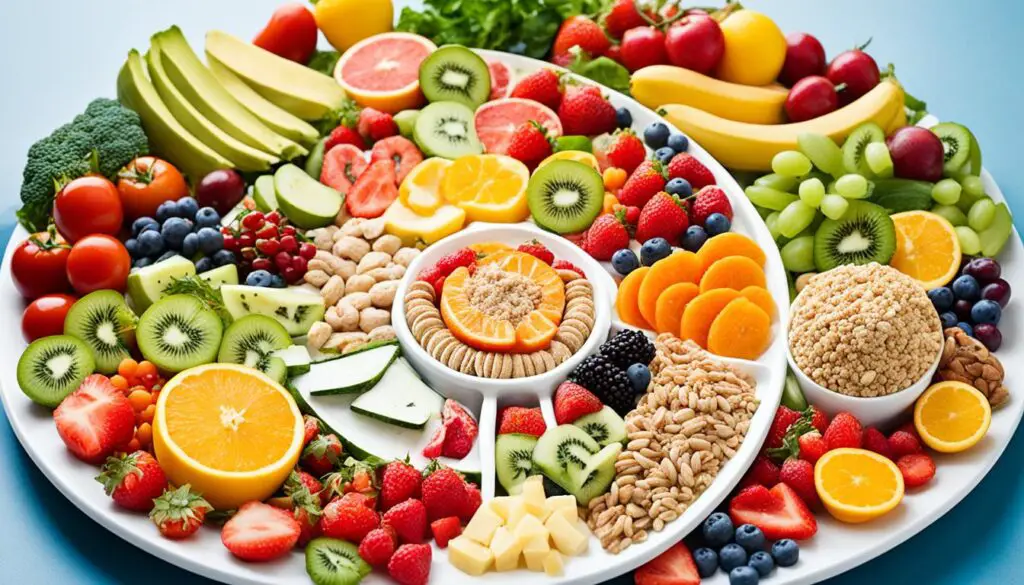
Phase 1 of the HCG diet is known as the Gorging/Loading phase and lasts for two days. During this phase, individuals are encouraged to eat as much fatty and oily foods as possible while starting HCG supplementation. This phase is considered critical for the success of the diet and helps prepare the body for the calorie restriction in the following phases. It is important to follow the specific guidelines and eat until feeling sick during this phase.
“The Gorging/Loading phase is an essential part of the HCG diet. It allows the body to build up its fat stores and helps kickstart the weight loss process in the subsequent phases.” – Expert
During the Gorging/Loading phase, individuals should focus on consuming high-fat and high-calorie foods. This includes indulging in fatty meats, fried foods, full-fat dairy products, and sweets. The purpose of this phase is to saturate the body with calories and fats, which provides a reserve for energy during the calorie-restricted phases. It is crucial to note that overeating during this phase is expected and necessary for the success of the diet.
Here is an example of foods that can be consumed during Phase 1:
| Proteins | Fats | Carbohydrates | Sweets |
|---|---|---|---|
| Steak | Butter | Bread | Cookies |
| Bacon | Olive oil | Pasta | Cakes |
| Sausages | Avocado | Potatoes | Ice cream |
By eating these high-calorie foods, the body prepares for the calorie restriction that comes in the next phase.
During Phase 1, it is important to start taking HCG supplements or receiving hormone injections as instructed. The HCG hormone plays a crucial role in the effectiveness of the diet by activating the body’s natural fat-burning mechanisms.
It is important to remember that Phase 1 is only two days long. After completing this phase, individuals will transition to Phase 2, the Fat Burn phase, where they will adhere to a strict 500-calorie diet.
Phase 2 – Fat Burn
During Phase 2 of the HCG Diet, also known as the Fat Burn phase, individuals will embark on a 21-day journey towards achieving their weight loss goals. This phase focuses on the consumption of a highly restricted 500 calorie diet, coupled with continued HCG supplementation.
The 500 calorie diet primarily consists of lean proteins, approved vegetables and fruits, and limited starches. By carefully selecting specific food choices and adhering to the prescribed portion sizes detailed in the diet plan, individuals can maximize the effectiveness of the Fat Burn phase. It is crucial to strictly adhere to the calorie restriction and food choices to experience optimal results.
Here is an example of a typical daily meal plan during Phase 2:
| Meal | Food Choices |
|---|---|
| Breakfast | 100g grilled chicken breast 1 cup spinach |
| Lunch | 100g grilled white fish 1 cup mixed greens |
| Snack | 1 medium apple |
| Dinner | 100g lean beef 1 cup broccoli |
| Snack | 1 orange |
Remember to consult the comprehensive diet plan provided by your healthcare provider or nutritionist for specific food choices and portion sizes tailored to your needs.
By following the Phase 2 – Fat Burn guidelines meticulously, individuals can experience significant weight loss results while maintaining proper nutrition. It is essential to remain disciplined and motivated throughout this phase to achieve the desired outcomes.
Stay focused on your journey to a healthier you as you progress through the Fat Burn phase.
Phase 3 – Maintenance Phase
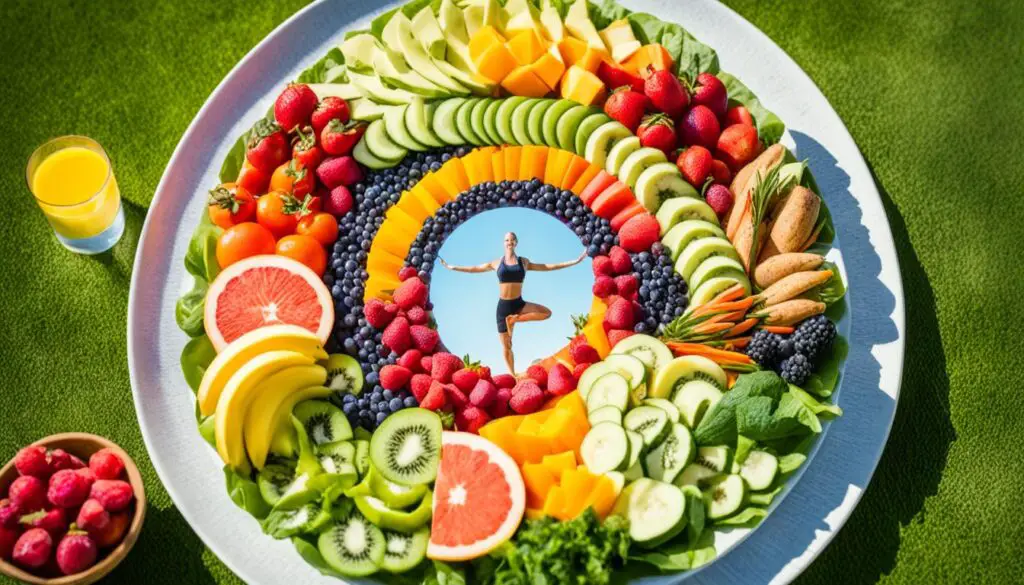
Phase 3 of the HCG diet is known as the Maintenance phase and lasts for three weeks after completing HCG supplementation. During this phase, individuals can gradually increase their calorie intake while avoiding sugar and starch. The goal is to stabilize weight loss and maintain a healthy eating pattern. It is important to monitor weight regularly and make adjustments if it exceeds a certain range.
The diet plan usually recommends a calorie intake of 800-1200 calories for females and 1200-1500 calories for males during this phase.
| Phase 3 – Maintenance Phase Guidelines |
|---|
| Gradually increase calorie intake |
| Avoid sugar and starch |
| Monitor weight regularly |
| Make adjustments if weight exceeds a certain range |
| Recommended calorie intake: 800-1200 calories for females, 1200-1500 calories for males |
During Phase 3, it is essential to follow the recommended calorie ranges while focusing on a well-balanced diet. The gradual increase in calories allows the body to adjust to a higher intake while maintaining the weight loss achieved during the previous phases. It is important to choose nutrient-dense foods and incorporate regular physical activity to support overall health and wellbeing.
HCG Diet and Food Choices
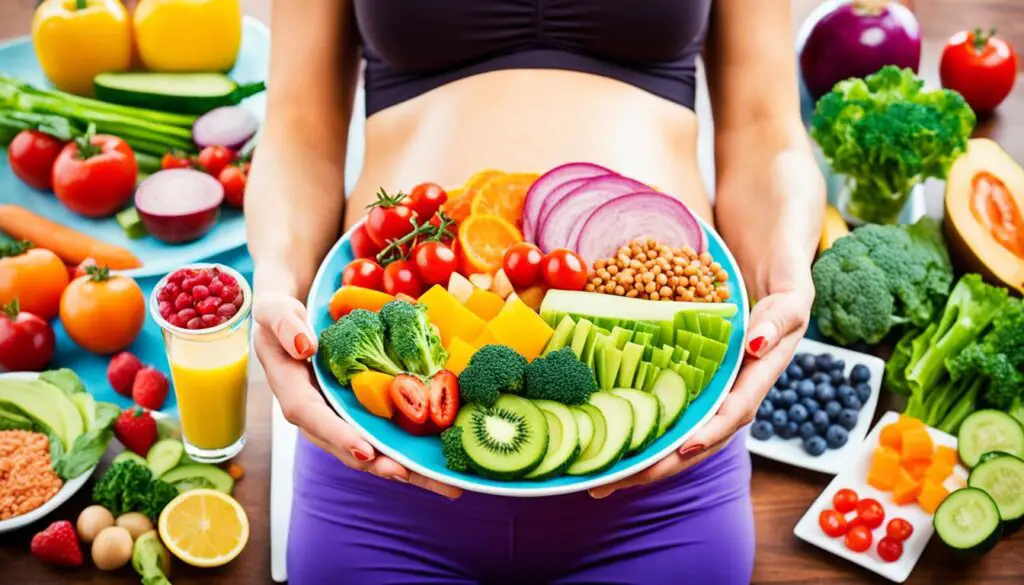
When following the HCG diet, it is crucial to make mindful food choices that align with the diet’s guidelines. The approved foods are carefully selected to support the weight loss phases and optimize results.
During the weight loss phases, the HCG diet allows for lean proteins such as chicken, beef, and fish. These protein sources provide essential nutrients and play a key role in supporting muscle health throughout the diet.
Additionally, certain vegetables like spinach and cabbage are encouraged due to their high fiber content and nutritional value. These vegetables help keep you feeling full and satisfied while providing vital vitamins and minerals.
The HCG diet also includes specific fruits that are low in sugar, such as apples and oranges. These fruits offer a healthy dose of natural sweetness while still being mindful of carbohydrate intake.
Starches are limited on the HCG diet, but there are still some options available. It is essential to follow the diet plan’s portion sizes for starches, including choices like melba toast and grissini breadsticks. These options offer a satisfying crunch without sabotaging your progress.
On the other hand, oils, dairy products, and high-carbohydrate foods are restricted during the weight loss phases of the HCG diet. These food choices are avoided to promote effective fat burning and weight loss.
By adhering to the HCG diet’s recommended food choices and portion sizes, you can optimize your results and achieve your weight loss goals. It is important to prioritize these guidelines to ensure the effectiveness of the diet plan.
| Approved Foods | Restricted Foods |
|---|---|
|
|
Safety and Side Effects of the HCG Diet

The HCG diet is a weight loss plan that is highly controversial among health experts due to its potential safety risks and side effects. It involves combining HCG supplements or hormone injections with an extremely low-calorie diet. While some individuals may experience rapid weight loss on this diet, it is important to be aware of the potential risks.
One of the main concerns with the HCG diet is the extreme calorie restriction it entails. Consuming only 500 calories per day can lead to nutrient deficiencies, including inadequate intake of essential vitamins, minerals, and macronutrients. This can result in various side effects, such as headaches, constipation, irritability, and fluid retention.
Headaches are a common side effect of the HCG diet and can be attributed to the low-calorie intake and potential hormonal effects of the HCG hormone. Constipation may occur due to the lack of fiber in the diet, as fruits, vegetables, and whole grains are limited. Irritability and mood swings can be a result of the drastic changes in energy intake and potential hormonal fluctuations. Fluid retention is also reported among some individuals following the HCG diet, which can lead to bloating and discomfort.
“The HCG diet should be undertaken under the supervision of a physician, as it may not be suitable for everyone.”
To minimize the potential risks and side effects associated with the HCG diet, it is crucial to undertake it under the supervision of a healthcare professional. They can assess your individual health status and provide personalized guidance and monitoring throughout the diet.
Furthermore, it is important to note that over-the-counter HCG products for weight loss are illegal and not regulated by the FDA. Therefore, it is recommended to consult with a healthcare provider and opt for medically prescribed and supervised HCG programs.
| Common Side Effects of the HCG Diet | How to Minimize Risks |
|---|---|
| Headaches | Stay hydrated and avoid excessive physical exertion. |
| Constipation | Incorporate high-fiber foods into the diet, including approved fruits and vegetables. |
| Irritability | Practice stress management techniques and support mental well-being. |
| Fluid Retention | Monitor sodium intake and consult a healthcare provider for personalized recommendations. |
The HCG diet should be approached with caution, and it is important to prioritize overall health and well-being. There are safer and more sustainable approaches to weight loss that focus on balanced nutrition, regular physical activity, and seeking professional guidance. Consulting with a healthcare provider is essential to ensure a safe and effective weight loss journey.
HCG Diet and Pregnancy Preparation

When considering pregnancy preparation, it is important to prioritize overall health and well-being rather than focusing solely on weight loss. Extreme calorie restriction and potential hormonal effects of the HCG diet may not be suitable for women trying to conceive. It is recommended to follow a balanced and nutritious diet, engage in regular physical activity, and consult with a healthcare provider for personalized advice on pregnancy preparation.
| Recommendations for Pregnancy Preparation |
|---|
| 1. Prioritize overall health and well-being |
| 2. Follow a balanced and nutritious diet |
| 3. Engage in regular physical activity |
| 4. Consult with a healthcare provider for personalized advice |
Incorporating these practices into your lifestyle will help create a foundation for a healthy pregnancy. Remember, weight loss should not be the sole focus when preparing for pregnancy. A well-rounded approach that prioritizes overall health and wellness will benefit both you and your future child.
It is essential to consult with a healthcare provider to ensure that you are following a safe and appropriate plan for pregnancy preparation. They can provide guidance tailored to your specific needs and help you optimize your overall health and well-being.
Conclusion
The HCG diet, which combines HCG supplementation or hormone injections with an extremely low-calorie diet, may promise rapid weight loss. However, it is important to note that this controversial diet is not considered safe or effective by health experts. When it comes to pregnancy preparation, it is crucial to prioritize overall health and consult with a healthcare provider before embarking on any weight loss plan.
While the HCG diet may seem tempting, its extreme calorie restriction and potential hormonal effects can have adverse effects, especially for women trying to conceive. Instead, it is recommended to focus on a balanced and nutritious diet, regular physical activity, and personalized guidance from a healthcare professional.
When it comes to weight loss and pregnancy preparation, there are safer and more suitable approaches available. It is always advisable to seek guidance from a healthcare provider who can provide personalized recommendations tailored to your individual needs and circumstances.
FAQ
What is the HCG diet?
The HCG diet is a weight loss plan that combines HCG supplements or hormone injections with an extremely low-calorie diet.
How many phases are there in the HCG diet?
The HCG diet consists of three phases: Phase 1 – Gorging/Loading, Phase 2 – Fat Burn, and Phase 3 – Maintenance.
No, despite its name, the HCG diet is not related to pregnancy.
Is the HCG diet safe and effective?
The safety and effectiveness of the HCG diet are highly debated among health experts. It is important to consult with a healthcare provider before starting this diet.
Can I follow the HCG diet during pregnancy?
The HCG diet is not recommended for women who are pregnant or planning for pregnancy. Extreme calorie restriction may not provide sufficient nutrition for a healthy pregnancy.
What is Phase 1 of the HCG diet?
Phase 1, known as the Gorging/Loading phase, lasts for two days and involves eating high-fat, high-calorie foods while starting HCG supplementation.
What is Phase 2 of the HCG diet?
Phase 2, also known as the Fat Burn phase, lasts for 21 days and requires consuming only 500 calories per day along with HCG supplementation.
What is Phase 3 of the HCG diet?
Phase 3 is the Maintenance phase and lasts for three weeks after completing HCG supplementation. During this phase, individuals can gradually increase their calorie intake while avoiding sugar and starch.
What foods can I eat during the HCG diet?
Approved foods during the HCG diet include lean proteins, certain vegetables, specific fruits, and limited starches. Oils, dairy products, and high-carbohydrate foods are restricted.
What are the side effects of the HCG diet?
The HCG diet can cause side effects such as headaches, constipation, irritability, and fluid retention. It is important to undertake this diet under the supervision of a physician.
How should I prepare for pregnancy while on the HCG diet?
When considering pregnancy preparation, it is recommended to follow a balanced and nutritious diet, engage in regular physical activity, and consult with a healthcare provider for personalized advice.

